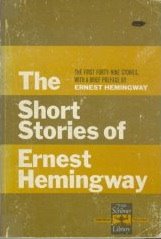 Charles Bukowski is the friend I never had. The guy who gets beat up in fistfights, gets up, and walks home as if he had only scraped a knee. The guy who will say what he thinks about anything to anyone, just because you asked. The guy who will piss all over someone's shoes if he doesn't like them, but is really insecure and unsure about life at the end of the day.
Charles Bukowski is the friend I never had. The guy who gets beat up in fistfights, gets up, and walks home as if he had only scraped a knee. The guy who will say what he thinks about anything to anyone, just because you asked. The guy who will piss all over someone's shoes if he doesn't like them, but is really insecure and unsure about life at the end of the day.I've not read any Bukowski before this, and my only knowledge has been lyrics from a Modest Mouse song: ...like Bukowski, and yeah, I know, he's a pretty good read but God didn't have to be such an asshole. So, naturally, I was expecting something raw and intense. Ham On Rye blew away my expectations.
Reading a book like Ham On Rye is like spending a night in a bar with the most interesting patrons, if you could wrap all the barflies into one and make that culmination all sixteen years old. The book is, like most of Bukowski's work, semi-autobiographical, and takes on his childhood up through his college career. It's like The Wonder Years but R-rated, and instead of Wendy there are various teachers and authority figures Henry Chinaski (the main character) admires but never gets.
To say the writing is obnoxious and vulgar is an understatement, but the writing is so good, so alive and full of truth that you don't want to stop reading. You want to hear more. You'd read Bukowski tell you how grass grows because he would make it interesting. Its labors towards the sun would be adolescently sexual, its thirst for water reminiscent of Chinaski's early adoration for alcohol (which, I can only assume, became a lifetime pursuit), its harsher times much like Chinaski's beatings by his father. You'd laugh with it, feel for it, and want to know everything about it. That's Bukowski.
I highly recommend this book, not just because of the cover either! And though, Ham On Rye was my first Bukowski read, it certainly will not be the last. I can't wait to read Post Office.





